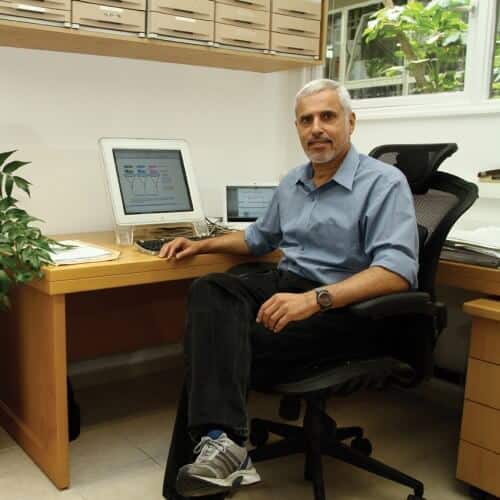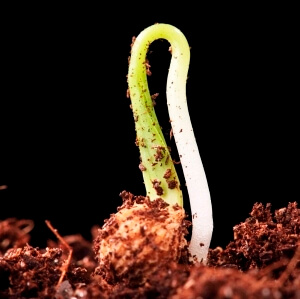Plants that eat themselves are sometimes good news

We all know how difficult it is to make the economy go from stagnation to growth, but in nature a process reminiscent of this type of transformation takes place in a routine way; This is the transition of plant seeds from a dormant state to a germinating state. The transition involves sudden and far-reaching changes in all plant systems: a reprogramming takes place in the genome, which affects the expression of genes and the production of various proteins throughout. The creation of hundreds of proteins important for the development of the seed and preventing its early germination stops, and in contrast, the creation of hundreds of proteins important for germination is activated.
germination
The "germination reversal" is of enormous importance, both in nature and in agricultural crops, because it has a great effect on the crop: the faster and stronger the germination, the bigger the crop may be. Farmers use different methods to accelerate germination artificially, such as soaking the dry seeds for a short time in a solution containing substances that promote germination. In order to improve the growth rate of sprouts and their quality, it is very important to understand the mechanism of germination at the molecular level. This understanding may lead to sophisticated ways to improve the germination rate of the seeds and its rate, which could also result in an increase in the yield. Also, controlling the exact timing of germination is important. If it starts too early, when the seeds are still attached to the "parent" plant and have not yet reached the ground, it is likely that the seeds will not lead to the development of new plants.

Prof. Gad Galili, from the Department of Plant Sciences at the Weizmann Institute of Science, is among the pioneers in the study of the "sprouting transformation". Prof. Galili recently discovered that the selective autophagy process, which is one of the central processes in plant life, participates in controlling the "transformation". In general, autophagy, which means "self-eating", is the breakdown of proteins that occurs in the cells of many creatures, and not only in plant cells: it was first discovered in yeast, and also exists in animals, including humans. Autophagy has been studied a lot, among other things because in humans, disruptions in the selective autophagy process are involved in various diseases such as Alzheimer's, Parkinson's, and other common diseases.
In plants, autophagy is intended to save the plant in times of need. Because plants, unlike animals, cannot run away from danger, and they need flexible mechanisms to help them deal with danger in other ways. This is where a large-scale autophagy mechanism comes into play, capable, for example, of stopping plant growth when there is a lack of food.
But recently it became clear that in certain situations, including during preparations for germination, a process of selective autophagy takes place in plants, in which selected proteins are broken down regardless of distress. Prof. Galili discovered about ten new genes, which may be involved in selective autophagy. His research, which was published this year in the scientific journal Plant Cell and other journals, focused on these two genes, ATI1 and ATI2, which are unique to plants, that is, they do not exist in animals.
In experiments with the research plant Arabidopsis, Prof. Galili showed that the activity of ATI1 helps the plant overcome conditions that inhibit germination and encourage it. One of the assumptions is that this gene breaks down proteins that inhibit germination, thus giving germination a "green light". When the expression of this gene increased, the percentage of germinating seeds increased, and they germinated faster and with greater vigor. Conversely, when the scientists blocked the activity of the two genes, ATI1 and ATI2, the intensity of germination decreased. In addition to clarifying the role of the genes, the scientists discovered the location of their activity in the plant cell. The research group included Dr. Eric Honig and research student Tamar Evin-Wittenberg.

Under conditions that lower the germination efficiency, the germination of the transgenic seeds (right) was significantly inhibited compared to normal non-transgenic seeds (left)
The study of selective autophagy in plants is still in its infancy, but discovering more details may allow plant scientists to control it to improve seed development, and enhance germination as needed.

One response
"Arabidopsis" is an annual wild flower
called in Hebrew Todarnit,
Because of its explosiveness and simplicity, it is used a lot in experiments,